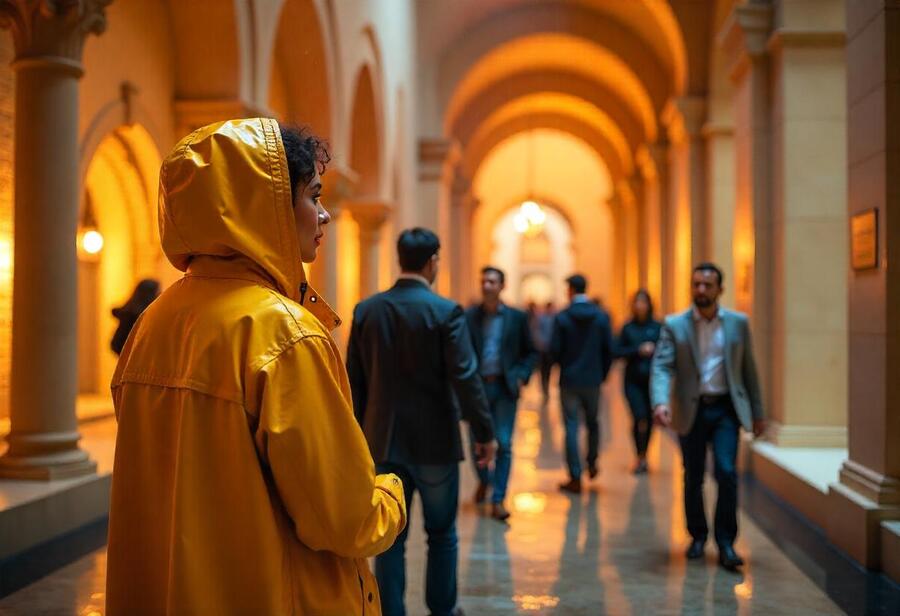
Home » Saudi Arabia Travel News » Saudi Arabia Emerges as a Global Tourism Leader with King Abdulaziz University’s Innovative Virtual Heritage Tours Revolutionizing Cultural Exploration
Sunday, May 18, 2025
King Abdulaziz University’s Faculty of Architecture and Planning has pioneered a groundbreaking virtual tourism initiative that leverages advanced geomatics technologies to provide dynamic, interactive tours of Saudi Arabia’s most significant cultural and historic sites. This state-of-the-art project aims to elevate the prominence of the Kingdom’s heritage landmarks by utilizing sophisticated spatial data acquisition, analysis, and visualization methods, thereby enhancing public engagement and supporting Saudi Arabia’s Vision 2030 ambitions for digital transformation.
Geomatics, a multifaceted discipline combining geography, engineering, geographic information systems (GIS), and remote sensing, serves as the backbone of this initiative. This fusion of expertise allows for detailed mapping and analysis of spatial environments, enabling precise monitoring, preservation, and presentation of cultural heritage. Through the integration of these technologies, the project transforms traditional tourism into an immersive digital experience, making Saudi Arabia’s heritage more accessible to a global audience.
Advertisement
This virtual tourism platform strategically positions Saudi Arabia as a leading contender on the international tourism stage by offering users the ability to explore the Kingdom’s rich cultural fabric remotely. Such technology-driven experiences cater to modern travelers’ growing demand for digital engagement and serve as a gateway encouraging physical visits. The initiative supports the Ministry of Tourism’s digital strategy unveiled in 2022, which encompasses multiple programs designed to revolutionize the tourism landscape through augmented and virtual reality technologies.
One of the project’s focal points is the historic Al-Balad district in Jeddah, particularly the Al-Alawi axis, an area renowned for its exquisite traditional Islamic architecture and recognized as a UNESCO World Heritage site. The virtual tours meticulously showcase the architectural splendor and intricate details of the buildings lining this historic corridor, providing users with an educational and engaging journey through Saudi Arabia’s architectural heritage.
Beyond offering virtual walkthroughs, the platform enhances the spatial analysis of heritage structures, furnishing detailed insights that aid conservation and restoration efforts. By making this information widely available, the project fosters cultural appreciation and raises awareness of the importance of heritage preservation. Moreover, it creates opportunities to attract investment by highlighting the potential for sustainable tourism development rooted in cultural assets.
The initiative also seeks to establish a comprehensive digital information network that integrates spatial data and tourism documentation. This network will serve as a critical tool for investors, developers, and policymakers by providing up-to-date information on the status and opportunities within the tourism sector. Through this, the project aims to draw both domestic and international capital, fueling growth in Saudi Arabia’s evolving tourism ecosystem.
This effort is fully aligned with Saudi Arabia’s broader digital transformation goals, which prioritize the integration of technology into key sectors to boost economic diversification. By creating a digital tourism ecosystem, the Kingdom not only enhances visitor experiences but also improves operational efficiency, site management, and marketing capabilities within the tourism industry.
Importantly, virtual tourism increases accessibility for individuals who may face barriers to physical travel, whether due to geographic, economic, or health-related limitations. This inclusivity expands the reach of Saudi Arabia’s cultural offerings, fostering global cultural exchange and elevating the Kingdom’s profile on the world stage.
The project also sets a technological benchmark for heritage preservation and tourism development in the region. Its successful application of geomatics can serve as a scalable model to digitally document and promote other historic sites across the country. This innovation encourages further adoption of technology-driven solutions in tourism, reinforcing Saudi Arabia’s reputation as a forward-thinking leader in heritage and travel innovation.
The impact of the project transcends digital engagement, as it actively supports sustainable tourism growth by boosting site visibility and encouraging more visitors to experience these cultural treasures firsthand. This, in turn, stimulates local economies through increased tourism spending, job creation, and infrastructure development, while ensuring that heritage preservation remains a priority.
This virtual tourism initiative complements other governmental reforms aimed at modernizing the Kingdom’s tourism sector, including enhancements in infrastructure, visitor services, and regulatory frameworks. It represents a holistic strategy that balances cultural conservation with economic development and technological progress.
As Saudi Arabia opens its doors wider to global travelers and highlights its unique cultural identity, such innovative digital projects play a vital role in shaping the future of tourism in the Kingdom. They demonstrate the power of blending technological innovation with cultural heritage to create meaningful, sustainable travel experiences.
In conclusion, the virtual tourism project developed by King Abdulaziz University’s Faculty of Architecture and Planning harnesses the power of geomatics to redefine how Saudi Arabia’s cultural and heritage sites are experienced. Through detailed, interactive tours of iconic areas like Jeddah’s Al-Balad district, the initiative enhances cultural understanding, attracts tourism investment, and advances the Kingdom’s Vision 2030 digital ambitions. This project exemplifies the transformative potential of technology in preserving heritage, promoting economic growth, and positioning Saudi Arabia as a global leader in digital tourism innovation.
Advertisement
Please visit:
Our Sponsor
